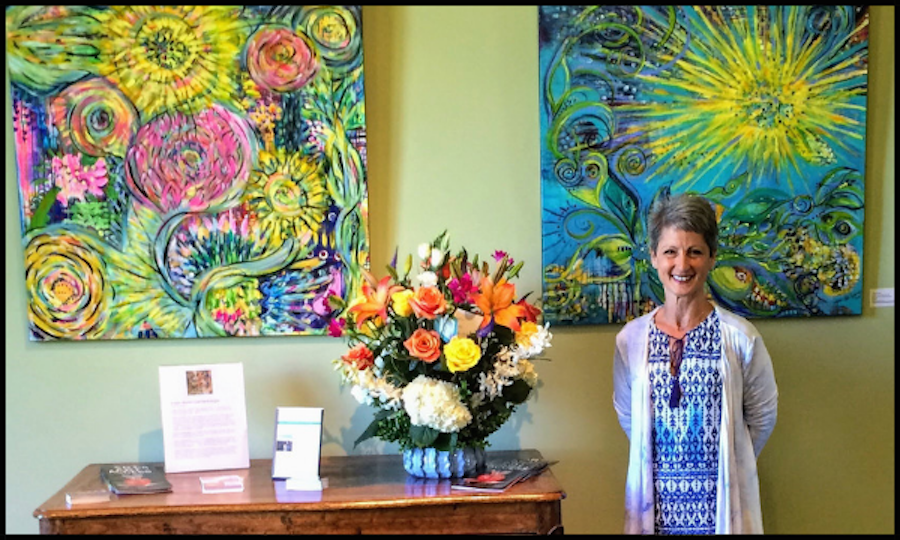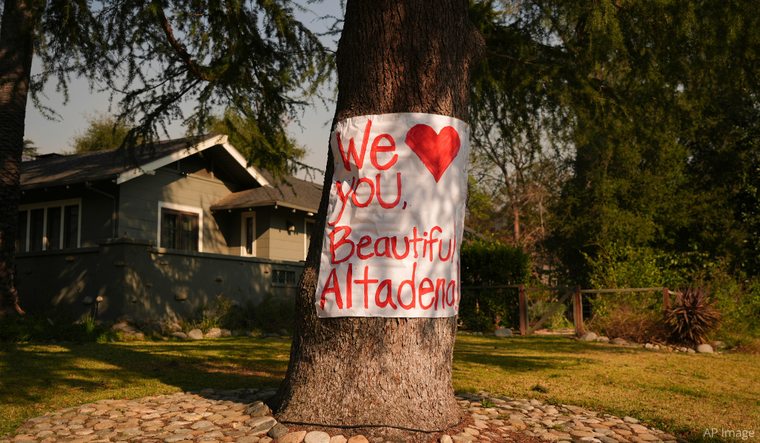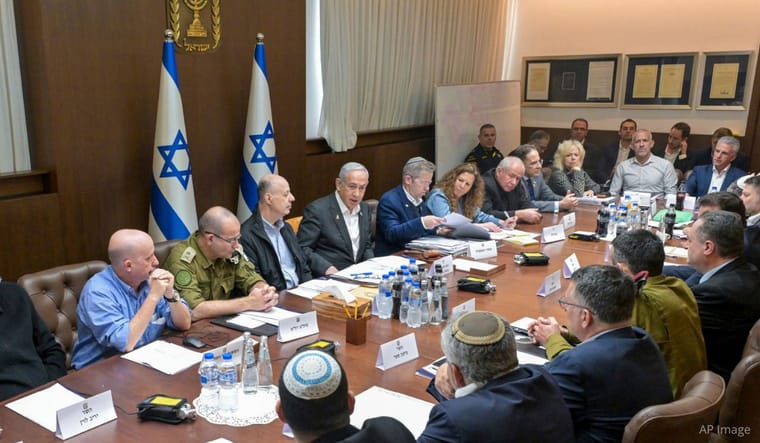Bridging the Political Divide: Dare to Listen, Dare to Speak
I grew up listening uncomfortably to after-dinner political debates between my conservative parents and my liberal maternal grandparents. My maternal grandmother was known to have 'converted” my grandfather from the Republican to the Democratic Party. My grandfather had inherited a long-established family business and with it, inherited wealth; in contrast, on my father's side of the family, all was lost in the crash of 1929. As a result, my father worked part-time jobs from the age of 12, served in the Navy in WWII and went to college on the G.I. Bill. He started his own business at the age of 40 and was very successful in providing for our family doing a job he loved. He and my mother lived and believed the 'Greatest Generation's” American dream: that everyone has the ability to forge a life of meaning and self-sufficiency if they work hard and don't give up.
My political perspective is more centrist than theirs; I believe the best combination for social progress is fiscal responsibility coupled with the creation of a basic safety net for those in need. This seems 'liberal” in my parents' eyes.
In retirement, my parents have veered farther to the conservative side than ever, but they are still independent enough to have broken with the Republican Party. When their views of President Obama became clearly divergent from mine, we stopped discussing politics altogether. This was my decision, not theirs; I was at a loss for words to bridge the divide.
During the most recent Presidential campaign and its aftermath, our opposing perspectives made me continue to avoid the topic. I didn't want to have the kind of disagreements I had witnessed between my parents and grandparents at the dinner table all those years ago. It was difficult to keep quiet, as we communicate several times a week and discuss everything else. Though 'people of good conscience may disagree,” I felt bewildered that my dear parents could accept Trump's words and behavior. I was able to hold my tongue until the Senate hearings on the Kavanaugh confirmation when I found I had to speak up.
While at dinner on Sunday night, our conversation turned to current events and the hearings, and it was clear that Mom and Dad felt suspicious of the motives of the opposition to the confirmation, and of the accuracy of Dr. Ford's testimony.
As a survivor of sexual abuse, I had a completely different reading of the courageous testimony given by Dr. Ford and the behavior of Judge Kavanaugh under oath. I said as much, then reiterated my love and respect for them, along with my desire to avoid arguing about politics. They assured me that they wanted to hear my thoughts, even if we disagreed. They were not put off by my opinions, even seeming to appreciate hearing my opposing viewpoint. They added, 'There is nothing you cannot discuss with us.” They welcomed an open dialogue.
After a bumpy beginning, each of us listened and spoke in turn, and found we agreed on some points. Though we share the same values, we disagree as to the best way to implement those values. I learned that certain issues held greater weight with each of us, which helped me to better understand their positions. It wasn't that they didn't care; it was that they cared differently about the issues.
They spoke of their many decades of experience, both observing and participating in the political process, which gave them perspective and hope. They believe in the strength and resilience of this country to outlast any one administration. They accept and embrace change, and they know it will come. They mentioned specific presidents whose administrations they have lived through, and how awful things have looked at various times in history. They are not afraid of the democratic process or its outcome; in fact, they trust it. They inspired me with their perspective and wisdom of experience; their hope was contagious.
The act of sharing truthfully, peacefully and respectfully with people I love showed me that this is what we need right now: first, to listen deeply, to speak, and look for common values, goals and interests that unite us; then, to brainstorm, collaborate and compromise to find the most workable and beneficial ways to achieve those goals for the good of all – not just for Americans, but also for the ripple effect we have on the world.
Because of this open discussion, my parents and I understand each other better, walls have come down, and while we may still disagree on the best means to accomplish the ends, we've restored a feeling of unity in our diversity.
It's fair to say that some of the current distress over political disagreements is rooted in fear – fear of the unknown, fear of change, fear of the motives of others and the outcome of their opinions. There is nothing wrong with feeling fear, but if it leads us into disrespectful behavior, we won't build bridges. As Bob Goff writes in his book, Everybody Always, 'Burning down others' opinions doesn't make us right. It makes us arsonists.” Artist Connie Solera of Dirty Footprints Studio writes about working with fear: 'Fear loves it when you're curious because all she really wants is a little of your attention and love. Sit down with fear and ask her why she's here.” We could apply that to our political differences and listen to our fears and the fears of others. Jack Kornfield recently wrote a helpful article called 'Freedom Amid Challenging Times”, in which he outlines simple steps for practicing loving attention, which enables us to bring a more peaceful and compassionate presence to the world.
We could start in our own neighborhoods and hold 'community coffees” – informal gatherings where people who want to bridge political divides can start right at home, listening, speaking and learning from each other. If we can practice finding common ground with those we know and love, it will become easier to do so with those we don't know, or who we do not yet trust. I'm grateful to my parents for building such a bridge with me.
Karen Gerstenberger is an avid reader of The Sunday Paper.
This essay was featured in the Nov.11th edition of The Sunday Paper, Maria Shriver's free weekly newsletter for people with passion and purpose. To get inspiring and informative content like this piece delivered straight to your inbox each Sunday morning, click here to subscribe.
READ MORE STORIES THAT MOVE HUMANITY FORWARD
READ MORE STORIES THAT MOVE HUMANITY FORWARD
SIGN UP FOR MARIA’S SUNDAY PAPER
Please note that we may receive affiliate commissions from the sales of linked products.



